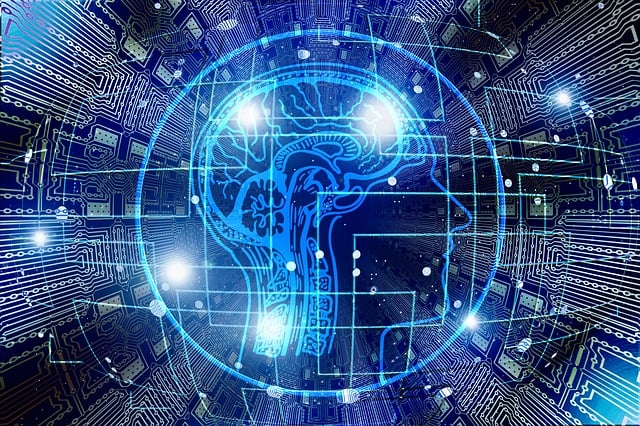The Impact of Artificial Intelligence
Introduction
Artificial Intelligence (AI) has emerged as a revolutionary force, reshaping the landscape of various industries. Its rapid evolution and integration into different sectors have raised both excitement and concerns. This article explores the transformative impact of AI on industries such as healthcare, finance, manufacturing, education, and retail while maintaining a focus on minimizing passive voice.

Healthcare Industry
Artificial Intelligence is poised to revolutionize the healthcare sector, enhancing diagnostic capabilities, personalized treatment plans, and overall patient care. AI algorithms can analyze vast amounts of medical data, identify patterns, and assist in early disease detection. For instance, machine learning models can analyze medical images to detect anomalies or predict the likelihood of diseases like cancer. The integration of AI into electronic health records also streamlines administrative tasks, reducing the burden on healthcare professionals.
Furthermore, AI-powered chatbots and virtual assistants are becoming increasingly prevalent in healthcare, providing patients with instant access to information and support. These technologies improve the efficiency of healthcare delivery, empowering both patients and practitioners.
Finance Industry
In the financial sector, AI is driving significant advancements in fraud detection, risk management, and customer service. Machine learning algorithms analyze transaction patterns to identify potential fraudulent activities, providing a proactive approach to security. Additionally, AI systems can assess market trends and economic indicators, helping financial institutions make more informed investment decisions.
Robo-advisors, powered by AI, are gaining popularity in the finance industry. These automated investment platforms use algorithms to tailor investment strategies based on individual preferences and market conditions. This not only democratizes access to financial advice but also optimizes portfolio management.
Manufacturing Industry
AI’s impact on the manufacturing industry is characterized by increased automation, improved efficiency, and enhanced product quality. AI-powered robots and autonomous systems streamline production processes, reducing the need for human intervention in routine tasks. Predictive maintenance, enabled by AI, helps prevent equipment failures by analyzing data to identify potential issues before they occur.
Machine learning algorithms are employed for quality control, ensuring that products meet high standards. This not only reduces defects but also enhances customer satisfaction. The integration of AI into manufacturing processes has the potential to create more agile and responsive production systems, adapting to changing market demands in real-time.
Education Industry
The education sector is experiencing a paradigm shift with the integration of AI technologies. Personalized learning platforms, driven by AI algorithms, tailor educational content to individual student needs. Adaptive learning systems analyze student performance data to identify strengths and weaknesses, allowing for a more customized and effective learning experience.
Chatbots and virtual tutors powered by AI provide instant support to students, addressing queries and offering additional learning resources. Moreover, AI facilitates administrative tasks, freeing up educators to focus on teaching and mentorship. The evolution of AI in education holds the promise of creating more inclusive and effective learning environments.
Retail Industry
In the retail sector, AI is revolutionizing the customer experience, inventory management, and supply chain operations. Recommendation engines powered by machine learning analyze customer preferences and behavior to offer personalized product suggestions, enhancing customer satisfaction and driving sales. AI-driven chatbots assist customers in making purchasing decisions and resolving queries, providing round-the-clock support.
Inventory management benefits from AI’s predictive analytics, ensuring optimal stock levels and minimizing overstock or stockouts. Supply chain optimization, facilitated by AI algorithms, improves efficiency by predicting demand patterns and optimizing logistics. As a result, the retail industry is becoming more agile and responsive to consumer needs.
Challenges and Considerations
While the integration of AI brings numerous benefits, it also presents challenges and ethical considerations. The potential displacement of jobs due to automation is a concern across various industries. Striking a balance between technological advancements and the human workforce is crucial to ensure a just and equitable transition.
Ethical considerations, such as bias in AI algorithms, data privacy, and the responsible use of AI, demand careful attention. Addressing these issues is essential to build trust in AI systems and ensure that they align with societal values.
Conclusion
Artificial Intelligence is reshaping industries, ushering in a new era of innovation and efficiency. From healthcare to finance, manufacturing to education, and retail, AI is leaving an indelible mark on how businesses operate. As we navigate the evolving landscape of AI, it is imperative to strike a balance between technological progress and ethical considerations, ensuring that the benefits of AI are realized while mitigating potential risks. The future promises continued advancements, and industries that embrace AI are poised to thrive in the rapidly changing global landscape.
